What to Watch - Turn: Washington's Spies
by Mike Lunsford, Patriot and Editor-In-Chief Great Geek Refuge
There are times when my viewing habits are influenced by the recommendations of others. Then again, there are times when I find something that strikes a particularly geeky indulgence I have. Turn: Washington’s Spies is the latter. I am a self-professed history nerd. Earlier this year I binged the heck out of Ken Burns’ The Civil War Documentary (and reviewed it of course) and my wife, knowing that I can’t resist a good historical drama, got me to start watching Harlots with her. I’m a mark, what can I say? When I was flipping through Netflix one evening I saw that the Alexander Rose book that I had picked up a dozen times at book stores but never pulled the trigger on was a series. Well…that’s certainly easier than reading, isn’t it?
Before we get into the review, let me state that I am fully aware the series has been out since 2012 and that it finished its 4 season run in 2017. Somehow I missed this show that first time around. I figure many of you are the same way and you might have missed it, too. Ultimately, that’s what these reviews are for: to share our enjoyment of something with others.
Turn: Washington’s Spies is a historical drama series based on Alexander Rose's book Washington's Spies: The Story of America's First Spy Ring. Our main character is a farmer named Abraham Woodhull (Jamie Bell, Fantastic 4) who lives in Setauket, New York. His father is the town magistrate Richard Woodhull (Kevin McNally, Pirates of the Caribbean) and he is married to Mary (Meegan Warner, Once Upon a Time) who was engaged to Abraham’s brother Thomas, a British soldier who was killed in a riot in New York City. The series begins in October 1776, shortly after British victories recapture Long Island and the Port of New York for the Crown, and leave General George Washington's army in dire straits. However, the British occupation is not all tea and good manners. The redcoats and their heavy-handed tactics have created a few enemies among the townspeople of Setauket, namely Abraham and some of his childhood friends, including an officer in the Continental Army, Benjamin Tallmadge (Seth Numrich, Private Romeo), a former whaler turned Continental Lieutenant named Caleb Brewster (Daniel Henshall, Snowtown), and the only other full time resident of Seatauket besides Abe, Anna Strong (Heather Lind, Boardwalk Empire) who runs the local inn and pub. Together they form what becomes “the Culper Ring,” a spy network that was integral to the success of the fledgling American forces during the Revolutionary War.
Caleb, Abe, Anna and Ben AKA the Culper Ring.
If you’re of the sort who likes when I just get to the chase and give you my takeaways without all the fluff, then I’ll indulge you right now: 8.5 out of 10. It’s not entirely historically accurate but honestly, who cares? It’s a captivating episodic series that hooks you immediately and begs you to binge watch it to see what happens next, and that is truly something to be proud of as this is based on historical events so you know how it all shakes out. Turn: Washington’s Spies is totally binge-worthy and deserves your time. All that spoiler-y stuff is below the line but for crying out loud, the Revolutionary War ended in 1783. I’m not giving away state secrets here. The lines is out of courtesy because some of you whine about “spoilers.”
When it comes to historical dramas, there are two schools of thought. The first is the strict adherents to accuracy. Who cares about building drama, intrigue and interest? Tell the damn story EXACTLY how it happened. I get it, it is based off of real events but it’s also set nearly 300 years ago and it’s not like there was an MTV documentary crew there capturing all of the footage for “Real World: Long Island.” You have paintings, historical accounts, diaries, letters, journals, and the like and you have to essentially put together a puzzle that is missing tons of pieces. There are things that happen differently in Turn: Washington’s Spies than historical accounts depict. I didn’t mind one bit as it made for a more compelling story and kept me guessing as to what will happen next. It’s not like they chose Antonio Banderas to play George Washington while he did lines of coke. Wait…what?
yes, I literally put that line in this article to share this video. lol
I’m not going to recount the entire series in this article, but I will give you the highlights of the series, as I watched all 4 seasons. The series is captivating. I normally tend to shy away from “an entire series in a weekend” sort of binge-watching but this show makes that difficult. You’ll finish an episode and they drop a cliffhanger on you that entices you to say “responsibilities be damned, I’m watching another one!”
As a history nerd, there are little bits and pieces that would get me excited. For example, when Abe decides to start his spying for the Continental Army and is in New York City selling cabbage as his cover and runs across some Hessian soldiers. They are eating sauerkraut, and Abe strikes up a conversation with them. They tell him that they’re going to be marching to New Jersey in December of 1776, I legit got excited. I had no idea that the Culper Ring had tipped off George Washington and his forces and prompted the Battle of Trenton! It added some depth to one of the proudest moments in early American history, whether it was factually accurate or not (Washington’s spies did help with dealing disinformation but the “Culper Ring” was not directly responsible).
Ready to kick some ass and take some Hessian prisoners
I was excited to see well known historical figures show up and play their part in this series as well. In fact, for the sake of this article, instead of breaking down the action, I will go into detail about the characters, many of them famous figures in history. Their development was deep and well thought out. Kudos to the casting of this show as the actors and actresses involved all have a rich pedigree of film, stage and television experience, each one giving a fantastic performance. We’ll start with my personal favorite.
General George Washington, commander-in-chief
I had hoped that we would get a considerable amount of George Washington in Turn: Washington’s Spies. After all, his name is in the title. I knew as the series started that he wouldn’t be the main character but I still held out hope. I’m a bit of a fan boy when it comes to George. Mount Vernon was only a half hour up the road from where I grew up and I now live mere minutes from his boyhood home of Ferry Farm. The legend of George Washington is part of being a Virginia native and growing up around here where there is a historical marker documenting every part of his life, it’s part of who you are.
Actor Ian Kahn (Dawson’s Creek) was fantastic as our first Commander-In-Chief. I figured it would be a good-enough sort of performance based on what we knew about Washington, but Kahn hit it out of the park. Washington was known to be tall and powerful and that is showcased in this performance. Based on historical documents regarding the way he spoke and his mannerisms, Kahn’s depiction is nearly perfect. For example, because of his infamous dental history, it is thought that the general would not have opened his mouth very wide when he spoke, in an attempt to hide any unsightliness. This also meant that his smiles were slight smirks at best. He was not loud or boisterous either often described as having a low, deep voice that almost had a murmur to it. This could be attributed to his poor dental health but also his bouts of pleurisy (a painful lung inflammation), which would make him almost sound breathy. A man with a fiery temper but also one of incredible self-restraint and control as he held self-command to be of the utmost importance, you don’t see Washington flying off the handle even when things are nearly falling apart. Kahn definitely did his homework when coming up with his interpretation of one of the most famous founding fathers. I was very impressed.
General Benedict Arnold
this son of a …
The most infamous traitor in American history is often just thought of as only that: a traitor. Most people don’t know much more about him. History nuts know that Arnold was a fierce warrior and bold military leader, capturing decisive victories at places like Fort Ticonderoga, Fort Saint-Jean and the battle of Saratoga. His bravery and lead-from-the-front mentality endeared him to his men and to many other young officers and soldiers. Owain Yeoman (The Mentalist ) portrays this tragic character and does this so admirably, that you see him as more than just the earliest betrayer of the America. He’s brave, heroic, and he wants to fight the British instead of jockey for power within the chain of command like many of his contemporaries. He earned the respect and admiration of General Washington but he continues to complain about not being paid, seeing it as a great insult after he’s acted so bravely. He’s not alone in this: no one is being paid as the new-found Continental Congress does not have the funds to do so yet but this does nothing to ease Arnold’s feelings of resentment. He also gets passed up for a prestigious promotion because those who did brown-nose Congress got theirs instead. It’s almost like he’s was on this council but not given the rank of master…
“What?” - Anakin and Benedict Arnold
I made the correlative joke that Arnold is kind of like Anakin Skywalker. Surprisingly enough, there are definitely some similarities to these two characters. You would think that the dude who became Darth Vader would be more villainous than Benedict Arnold. Nope! Arnold is way worse. At least Anakin had some good qualities even after he was more machine than man, and the fact of the matter was that Anakin was lied to and manipulated. Arnold made the conscious decision to leave the American cause because he liked fancy furniture.
As time moves forward, you see Arnold make his fateful decision to betray the colonies. Those traits of bravery and heroism reveal themselves to be just a veneer: he’s an avaricious, petty, cruel man who’s loyalties are easily swayed. What ended up being his biggest reason for turning on his American allies? Money. The machinations of Major John André through Arnold’s wife Peggy Shippen, who was secretly in love with André even after Arnold and her were married, also was a major factor in Arnold’s defection. I’ll discuss this series of events more in detail when we cover André.
Hats off again to the excellent portrayal by Owain Yeoman as this character was given substantial depth and intrigue. Yeoman outshines the 2003 Aidan Quinn depiction of Arnold in History Channel’s Benedict Arnold: A Question of Honor which also had Kelsey Grammer as George Washington. Honestly, Kahn out did Kelsey Grammer. His version was just Frasier wearing a powdered wig.
Major John André
The head of British Intelligence in the American conflict, Major John André (JJ Feild, Captain America: The First Avenger) is a force to be reckoned with. If you were wondering if the idea of a James Bond-esque archetype has existed in the collective British DNA for centuries, André is proof of this theory. He’s smart, cunning, has a plan for everything, he’s debonair, charming, a good dancer, an artist, a poet, a writer, and romantic: a true renaissance man by definition.
As the series plays out, you see that André has many irons in the fire when it comes to gathering intelligence. In fact, he uses his connections and charm to convince an attractive, young actress to be part of a honeypot scheme to convince Continental General Charles Lee to sell secrets to the British. He had connections with a Continental soldier who was posing as a British officer who he intended to turn into a double agent and had many other assets that were helping the British military assert it’s dominance.
He tried to use the same “honeypot” scheme against Benedict Arnold with Peggy Shippen, but this time around he didn’t account for the fact that he had fallen in love with Peggy. When André must retreat from Philadelphia, he reluctantly leaves Peggy behind, realizing that he may have a golden opportunity to turn another General. He convinces Peggy to befriend Benedict Arnold who is the incoming military commandant of the city, and introduce him to André, thereby changing the course of the war. It would garner André the honors and riches that will impress Peggy’s father enough to allow him to marry her. It would be his last attempt at a plot as it blew up in his face in spectacular fashion.
Upon his first face-to-face meeting with General Arnold, one of the terms for defection André asked of him would be for him to break of his engagement with Peggy. Arnold arrogantly asserted that she was already Mrs. Arnold and that he had already “had her” and she was therefore tainted. Crestfallen at the news of their marriage and Arnold’s disgusting lack of couth, André left the meeting with the plans to West Point, Arnold’s new command post, and a pass to cross enemy lines signed by the General himself. He was captured by American militiamen while Arnold manages to evade capture and become a British officer.
Throughout the entire ordeal, we saw that André was a man of integrity and honor, while his counterpart, Arnold, was far from that. When the time for his death came, André placed the noose around his own neck. He told his Continental counterpart, Major Benjamin Tallmadge that he did all of this for the love of Peggy. It was a great way of humanizing the British soldiers of the Revolutionary War: not all of them were simply out to bring Americans to heel. Many of them were just doing their job to end the conflict and trying to find something worth fighting for. Major John André was one of my favorite characters that I had known nothing about going into Turn: Washington’s Spies.
And now…for another favorite:
Robert Rogers
For any military man, in particular Army soldier, you know about Robert Rogers (Angus MacFadyen, Braveheart). He is credited with being the creator of the modern Ranger. He was a practitioner of “irregular warfare,” that is tactics that were beyond the standard “stand in line and shoot at each other” combat style of most large European armies. He was a master of terrain and taught his Rangers self-sufficiency, courage, stealth, and methods of camouflage. Where John André is a master of the “soft skills” of war, Rogers knows the hard ones. In fact, he was sought after by both the Colonials and the Brits. Rogers was born in Massachusetts and served England in the French and Indian War where he first started enacting his “ranging” tactics, but after the conflict, he was a bit of a free agent. This is shown in great detail in Turn: Washington’s Spies as we see Rogers exchanging intelligence with André in the first episode of the show. We also see a flashback where he offers George Washington his services to which ol’ George tells him to kick rocks, but in a polite, gentile-sounding way.
Rogers ends up being a thorn in the side of both British officers and our Patriot spy ring. What made him an interesting character throughout the series was that his own personal vendettas superseded any orders from higher ranking British officials. At various points, the British try to betray him so he essentially is fighting his own, third war against everyone. He was a drunk, he was overweight, and in spite of all those hinderances, he was still tough as nails in a fight. His skills as a warrior made him a nightmare to square off against.
Turn: Washington’s Spies treat Rogers like one would expect a man of his incredible skill and talent be treated: he was like the boogey man. Every soldier found dead by unknown circumstances, whether American or British was rumored to be killed by Rogers. He was though to be part of the Culper Spy Ring. Everyone was always on the look out for him when he wasn’t even anywhere near their location. He was a legend that no one trusted, and a total badass to boot.
John Graves Simcoe
If there was an inverse to Major André, it would be John Graves Simcoe. While not the highest ranking officer that was bedeviling the Patriots, Simcoe is a warrior, albeit an insane, sadistic one. He’s a man’s man, in the purest form. He’s good in a fight, he’s smart, cunning, devious, and confident. He’s also a pain in the ass. He seems almost unkillable as he gets shot multiple times, blown up with an improvised explosion courtesy of Robert Rogers, and stabbed by Major Hewlett. He’s the kind of commanding officer a soldier would want to follow: he knows his stuff and he scares the crap out of the enemy. He is stationed in Setauket initially under the command of Edmund Hewlett but he is over zealously pursuing Abraham as part of the rebel spy ring (while correct, he had no proof). He ends up going from British regular to Major of the Queen’s Rangers after Rogers is effectively fired from the position. But like Rogers, he is willing to turn against his fellow soldiers to meet his own goals. He frames his former commanding officer, Edmund Hewlett and turns him over to Continental soldiers in hopes that he’ll be executed.
Samuel Roukin turns in an incredible performance as Simcoe. He adopted this obnoxious, high pitched almost lilting voice. It is in stark contrast with the badassery you see from his as a soldier, but it makes him that much more annoying as an enemy. You hear this guy with the most ridiculous, effeminate voice and he kills half of your platoon with ease. He is such a good villain that every episode you hope that someone ends up killing him.
What’s incredible about Turn: Washingon’s Spies is all of the people I’ve mentioned above are not even the main characters! This show is so incredibly acted that supporting characters are incredibly interesting and well fleshed out. Simcoe is the only one who really falls into the category of main character as he is involved in every episode of the series and the main antagonist. The main characters of the series are the members of the Culper Ring: Abraham Woodhull, Anna Strong, Major Benjamin Tallmadge and Caleb Brewster. They are the heart of the series as the stories revolve around their exploits.
Abe goes from cabbage farmer who is not interested in being involved in the war to the most important spy in the American Revolution, codenamed “Samuel Culper.” Historically speaking, his father, Judge Woodhull was sympathetic to the Patriot cause, but in Turn: Washington’s Spies he starts as a “tory.” The added nuance of having a father and magistrate who is supporting the King makes the stakes that much higher and the difficulty at which Abe must work that much more dramatic. He finds himself in countless situations that have you wondering “how is he going to get himself out of this one?” and manages to find a way out, none of it seeming implausible or unbelievable.
You see Benjamin Tallmadge get promoted to Major and put in charge of American Intelligence. He protects the identity of “Culper” throughout the entire war effort, never revealing his name to anyone other than the other members of the ring. You also learn that he was a classmate of famous American spy Nathaniel Hale who was hanged early in the war for treason by the British. That famous speech given by Hale “I regret that I have but one life to give for my country?” Made up. It was fabricated to instill pride and inspiration in the American cause. Tallmadge provides a means for us to see the cruel realities of war from the American side and the truth that no cause is altruistic and just: they have dirty secrets they are hiding, too.
Anna Strong and Caleb Brewster are trusted couriers for messages leaving Setauket and you see how the war has affected their lives. Anna loses her husband Selah when he is arrested and sent aboard a prison ship. She has to sell her husband’s tavern just to have ends meat but refuses to give up helping the American cause.
Caleb on the other hand is a Lieutenant in the Continental Army but almost exclusively under cover as a spy. With his connections to privateers and pirates, Brewster is involved in one daring exploit after another. Eventually he gets captured by the sadistic Simcoe and is tortured severely and we see that the concept of PTSD is nothing new. After escaping, he struggles with emotional scars even after his physical wounds have healed.
Turn: Washington’s Spies is good TV. Lately, I hate binge-watching shows because I feel that something is lost when you cram so much content into a short period of time, but it is nearly impossible to not addictively watch this show. The acting is exemplary as every character comes to life and you find yourself googling their real life counterpart to see if what’s happening on screen is similar to what really happened to them (99% of the time, it is). The story takes some liberties with the facts but never anything egregious. If you like exciting TV, watch Turn. If you like history, watch Turn. What I’m saying here is, you should watch this on Netflix no matter who you are. It’s more compelling than episodes of Friends you’ve seen a million times. Turn: Washington’s Spies gets 8.5 out of 10 stars. It is damn fine television that will make you want to binge the entire series.


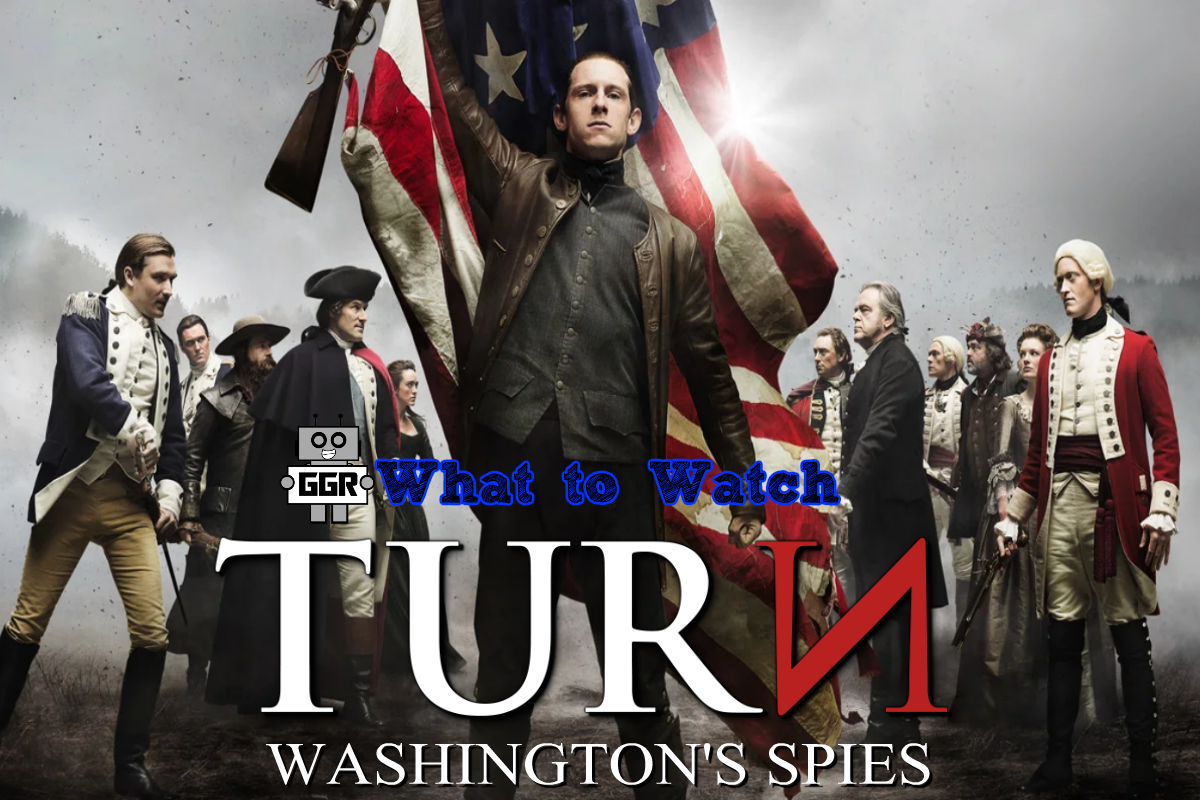

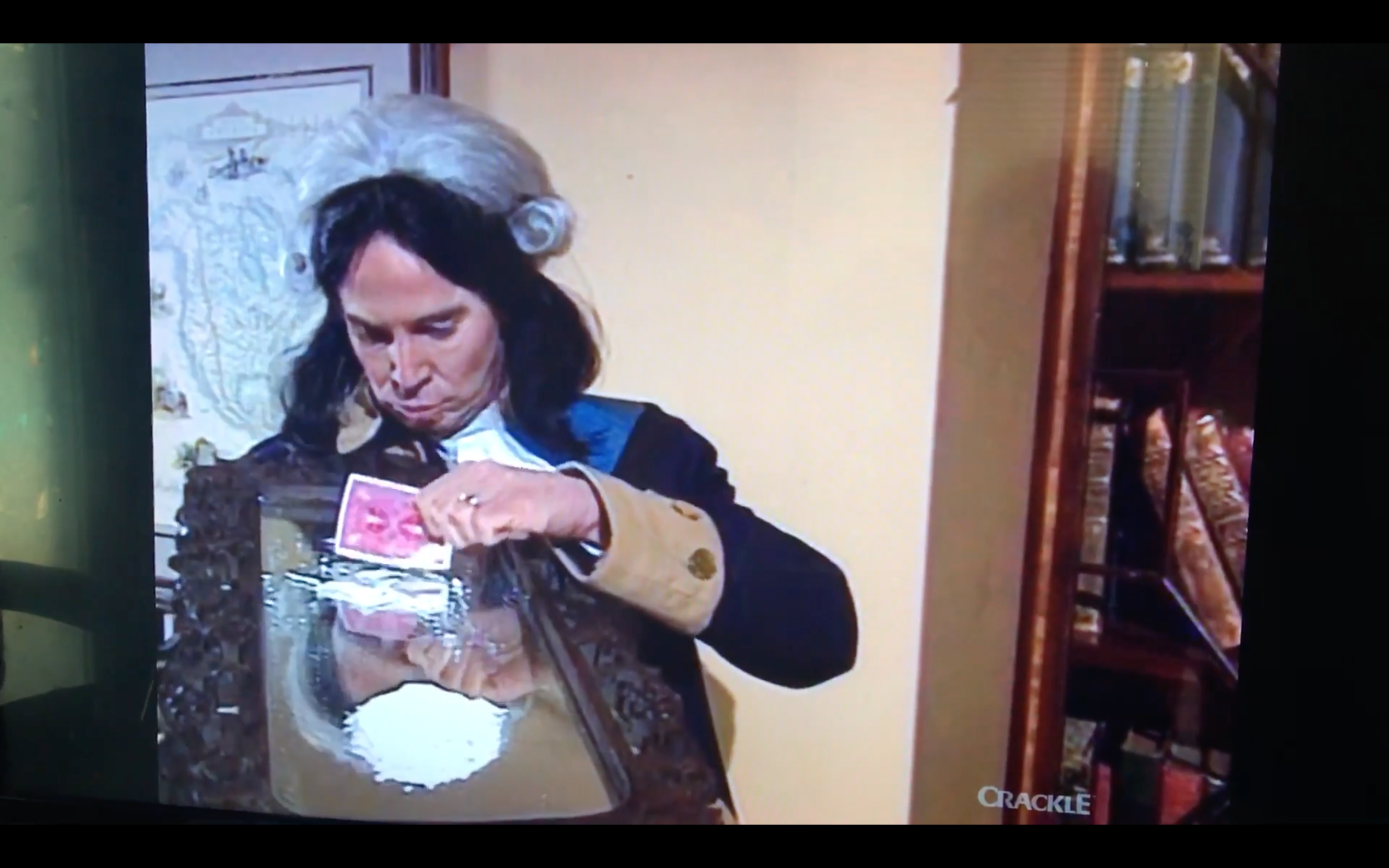
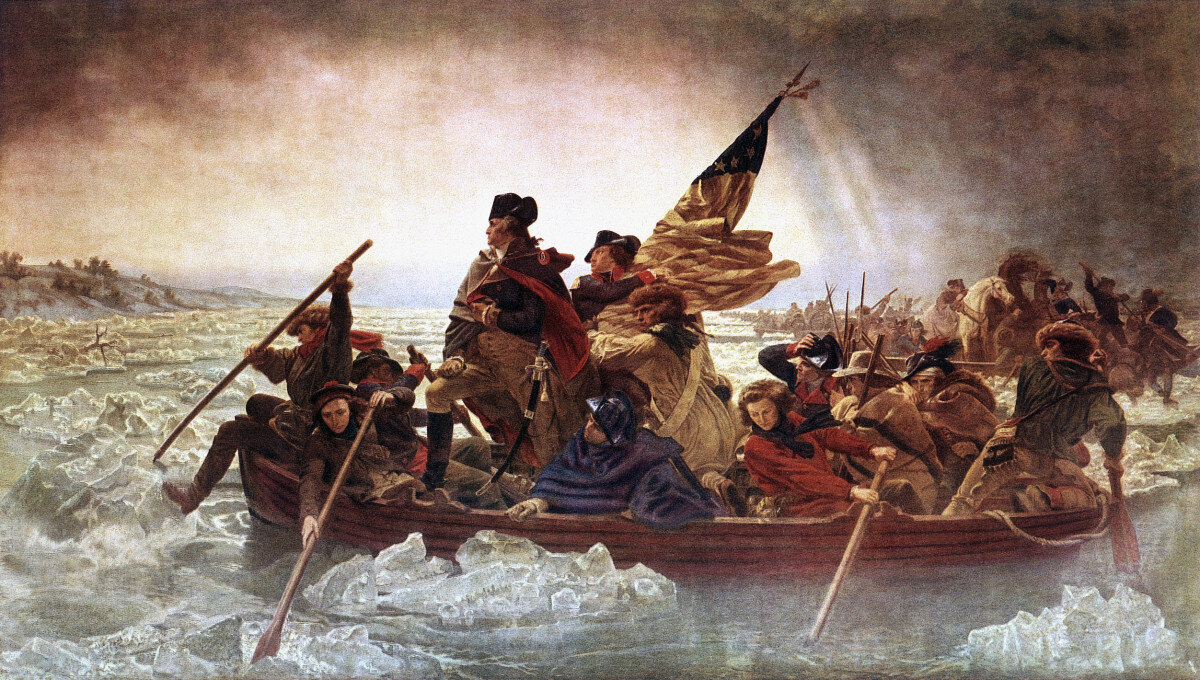
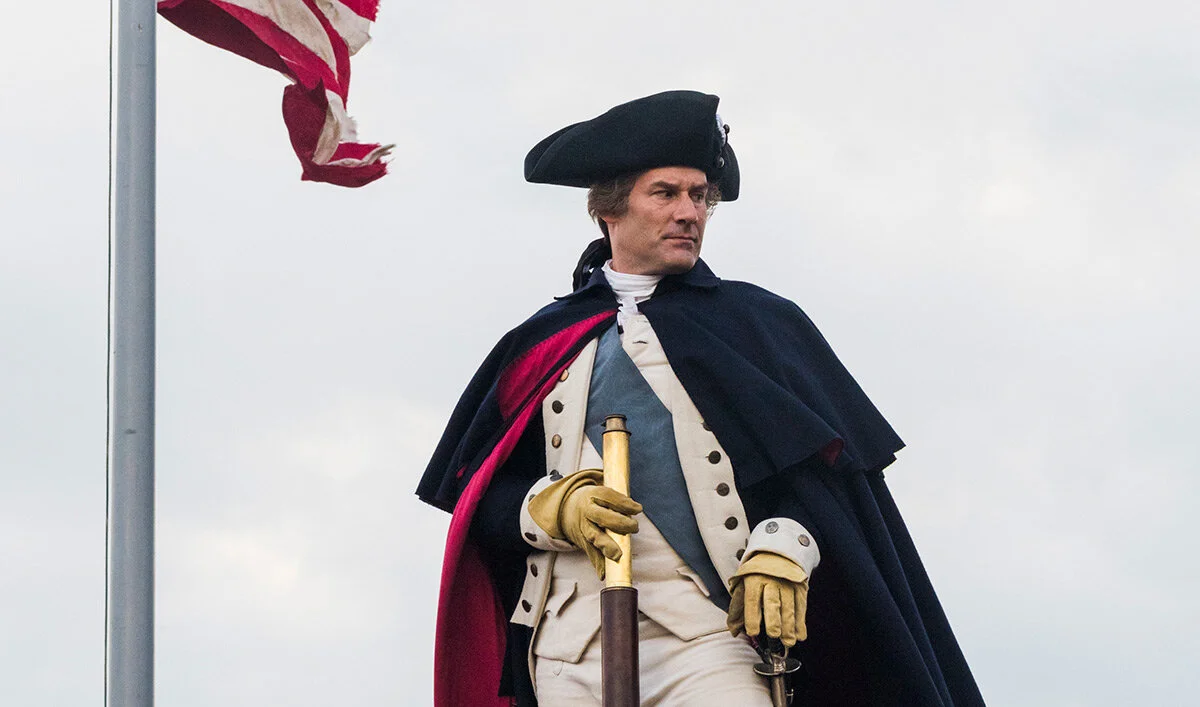


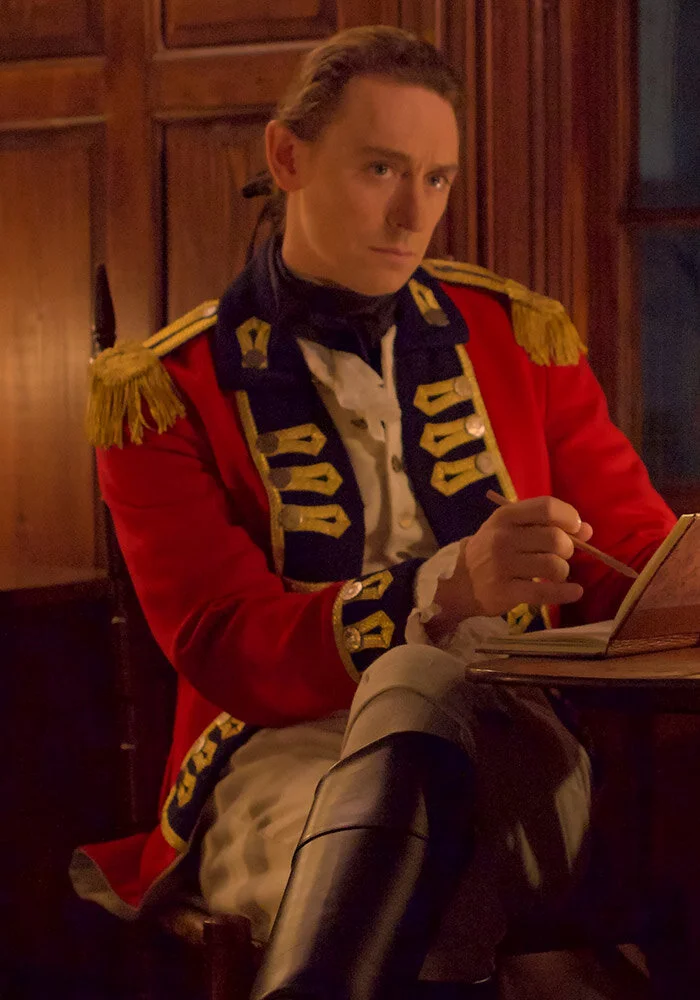

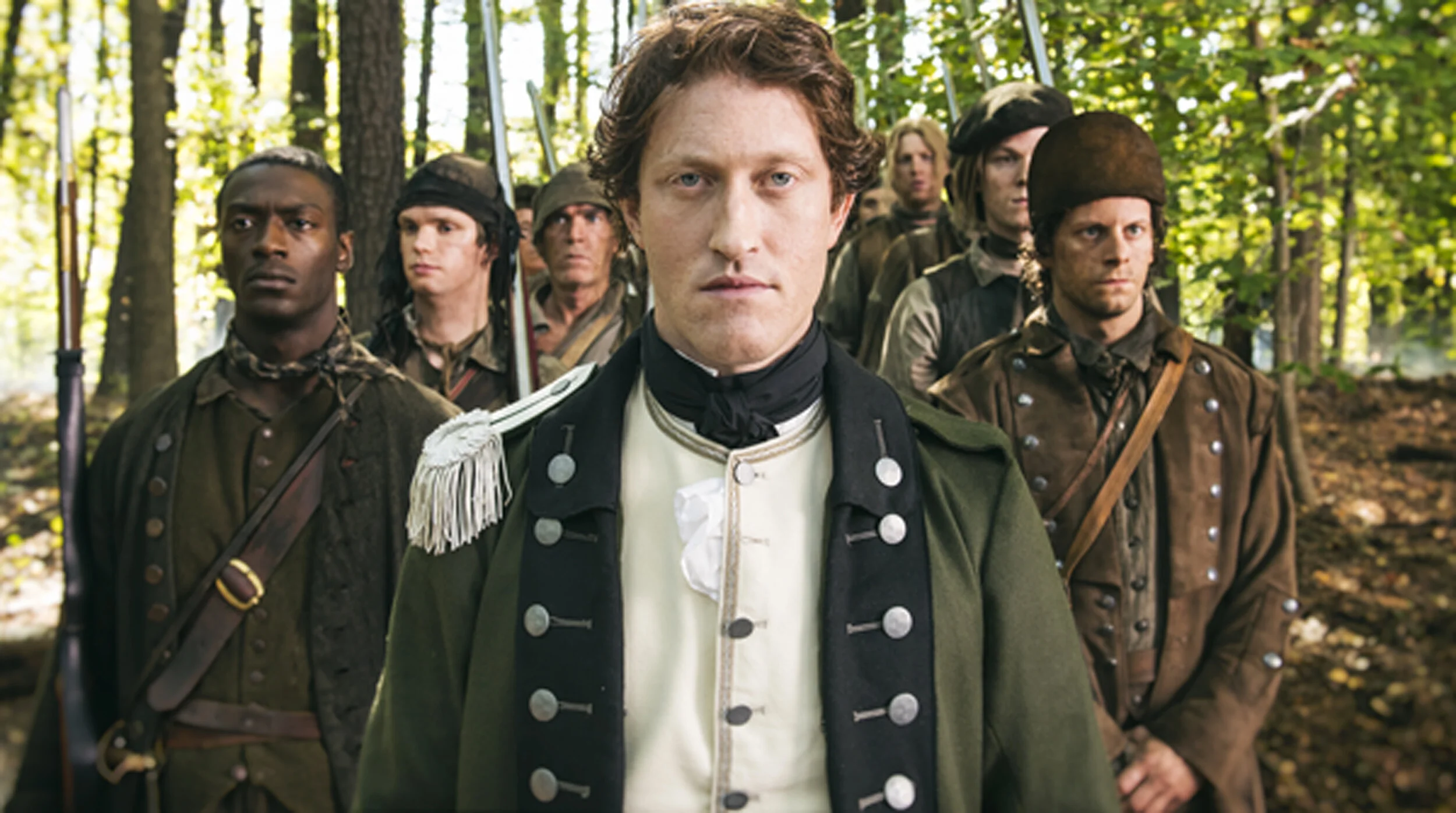

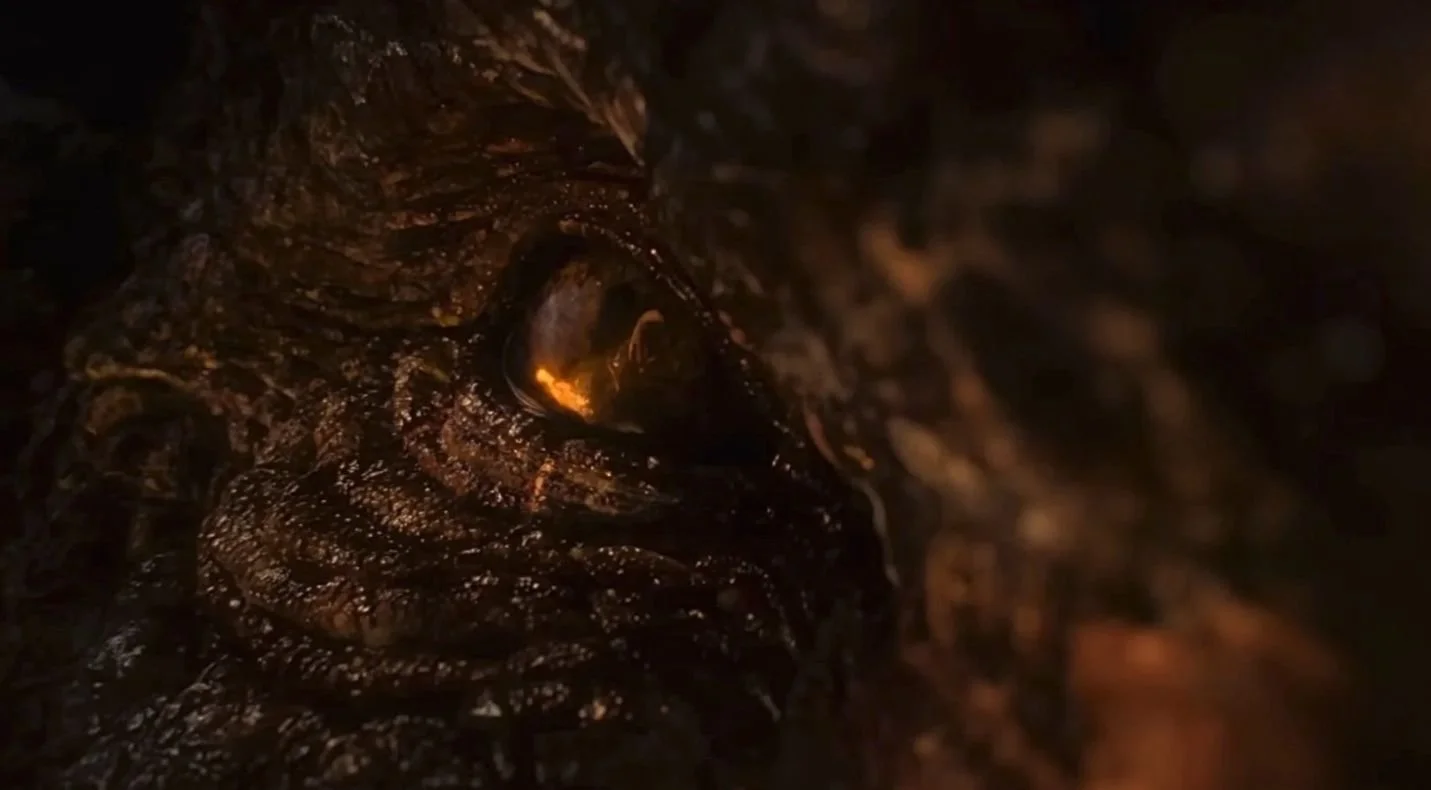















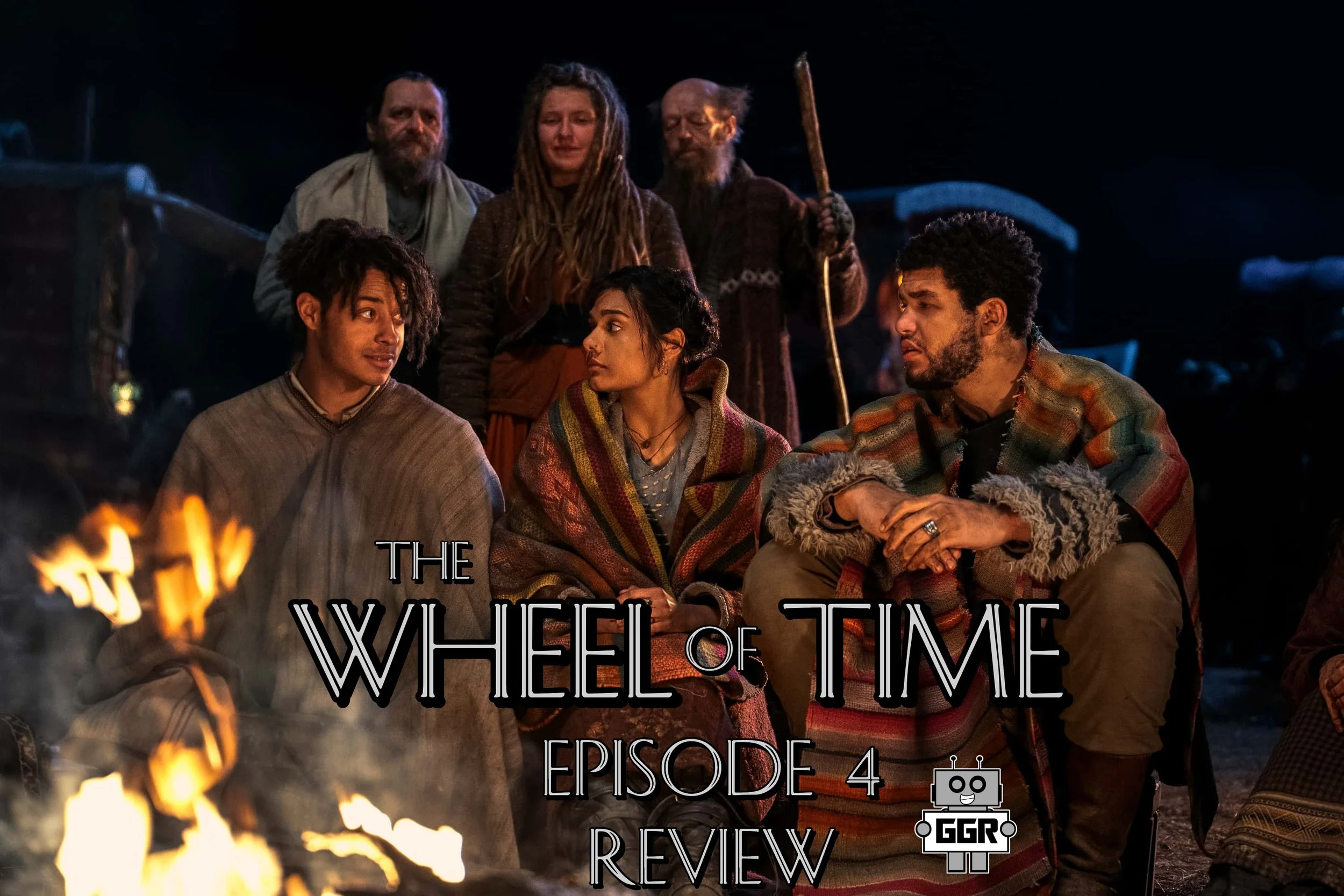











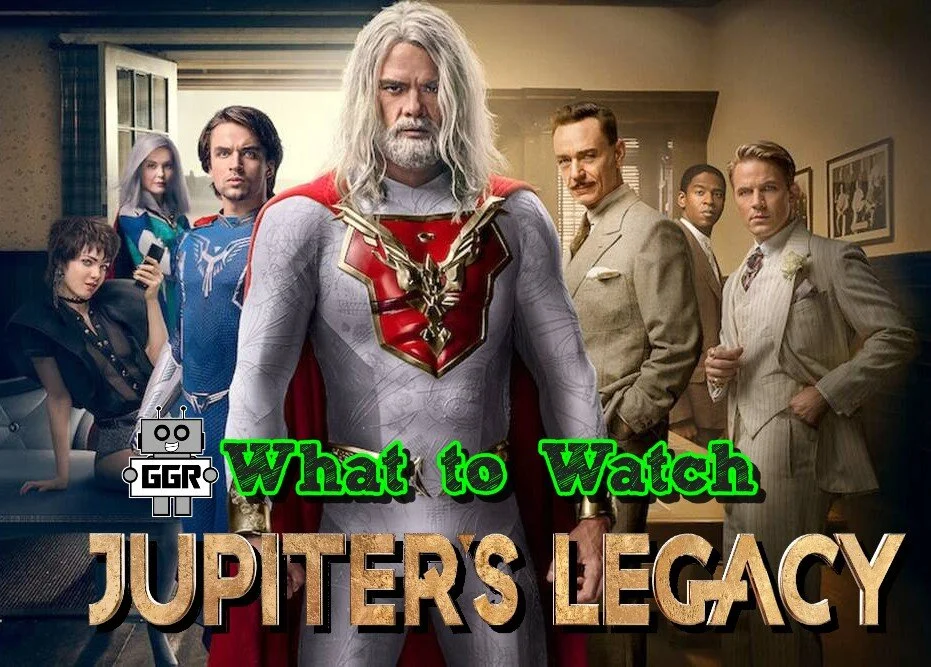
EIC Mike Lunsford gives his review and commentary on the HBO Max documentary “Pee-wee as Himself.”